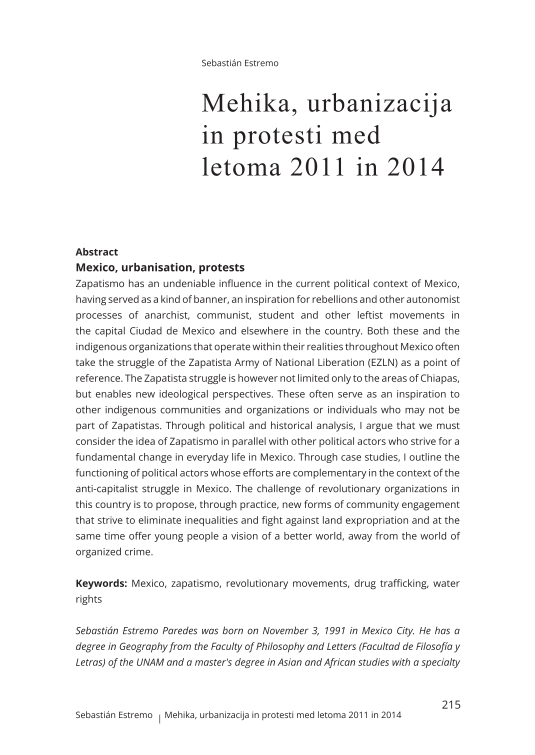Zapatismo has an undeniable influence in the current political context of Mexico, having served as a kind of banner, an inspiration for rebellions and other autonomist processes of anarchist, communist, student and other leftist movements in the capital Ciudad de Mexico and elsewhere in the country. Both these and the indigenous organizations that operate within their realities throughout Mexico often take the struggle of the Zapatista Army of National Liberation (EZLN) as a point of reference. The Zapatista struggle is however not limited only to the areas of Chiapas, but enables new ideological perspectives. These often serve as an inspiration to other indigenous communities and organizations or individuals who may not be part of Zapatistas. Through political and historical analysis, I argue that we must consider the idea of Zapatismo in parallel with other political actors who strive for a fundamental change in everyday life in Mexico. Through case studies, I outline the functioning of political actors whose efforts are complementary in the context of the anti-capitalist struggle in Mexico. The challenge of revolutionary organizations in this country is to propose, through practice, new forms of community engagement that strive to eliminate inequalities and fight against land expropriation and at the same time offer young people a vision of a better world, away from the world of organized crime.




